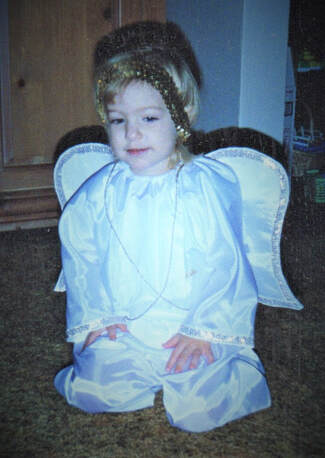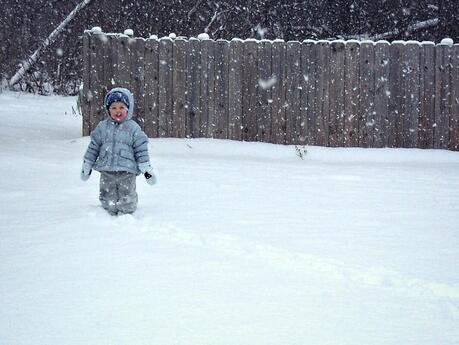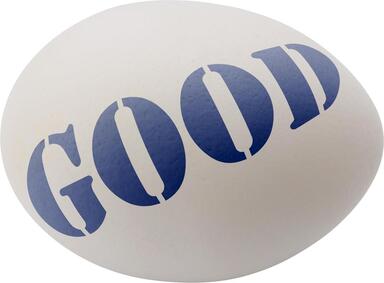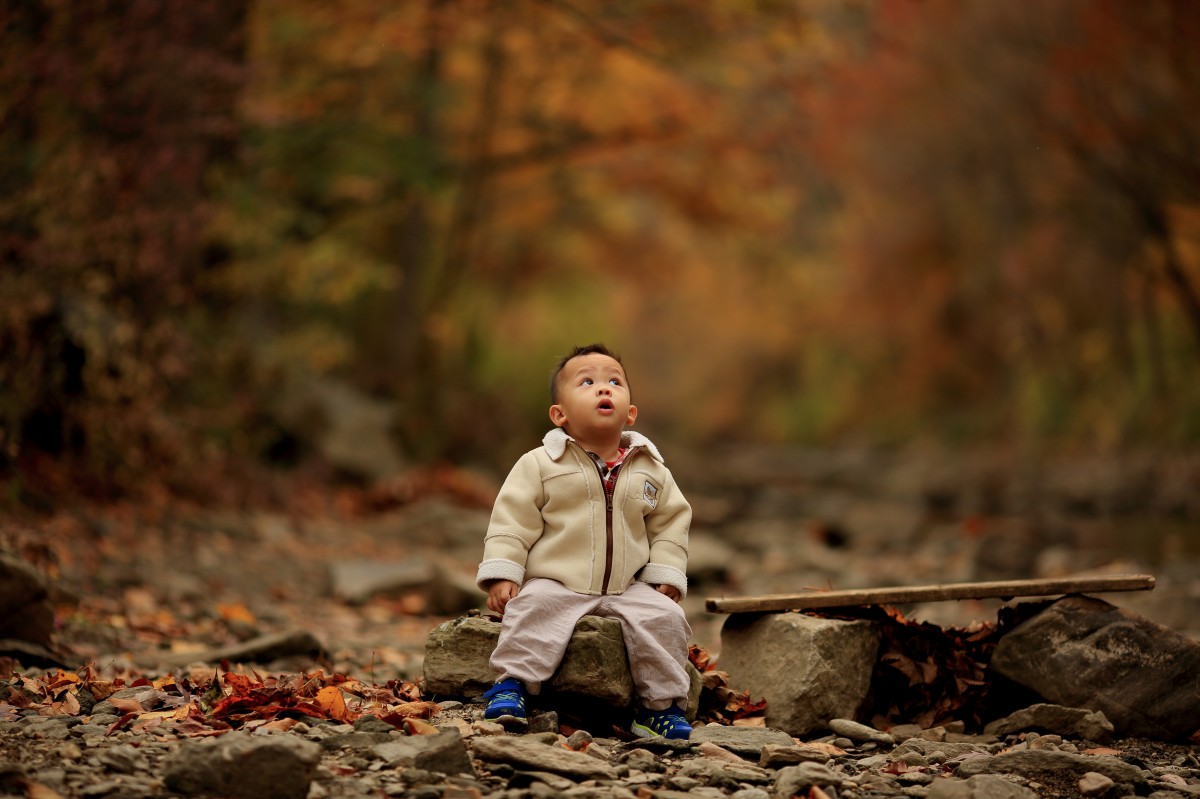all of the selves we Have ever been
 I went into labor on Labor Day. The holiday that traditionally defines the end of summer was about to redefine my life. By midnight contractions were coming close together. The doctor could not be reached, but the answering service advised me: “Get to the hospital.” Almost two weeks past my due date, my husband and I were ready. The hour-long drive to the hospital took on the extra seriousness that travel takes in the lonely, dark hours of the night. I timed my contractions by the glowing blue digits of the dashboard clock, reassuring myself that this was no false alarm. My husband and I did not speak. He concentrated on driving and kept his thoughts to himself. My own mind was stirring with both concern and excitement. It had been a long nine months. This pregnancy followed a painful miscarriage. While delighted with another pregnancy, life had not been easy. I suffered from serious anemia; the low-iron fatigue was complicated by repeated travel from Ohio to California where my father was dying of cancer. In between trips, the old pipes in our home blew out and all of the plumbing had to be replaced. Both my life and my home had been torn apart, but, at last, a wonderful new chapter was about to begin. We arrived at the hospital where I was assigned to a labor room and placed on monitors. The hours ticked by with no increase in the intensity or frequency of contractions. Drugs were added to an IV in an effort to move things along. One-by-one signs appeared that a baby was on the way and so did the signs that it was a baby in distress. The decision was made to proceed with a cesarean delivery. A nurse anesthetist began the epidural. Almost immediately I felt a strange, intolerable heaviness from my lower back to my toes. I focused all of my energy on holding my body together. Tingling and discomfort moved up my spine, through my neck, and to the back of my head. In the delivery room I struggled to maintain consciousness. My mind began to register that something was terribly wrong. “I should care about this but I can’t,” I thought. It was like someone had thrown a switch in my head that separated my emotions from the reality of the emergency taking place. I was more apathetic observer than participant. At 3:12 PM my daughter, Emily, was born. She was wrapped in a blanket and handed to her father who turned Emily’s tiny, red face toward me as the staff whisked both father and daughter from the room. The doctors finished their work. My eyes next opened somewhere in a hospital corridor, and then I was out again. The next moment of awareness came as a young nurse approached my bed in the recovery room. I could see her face coming closer. “Something is wrong with me,” I said. “I’m all wet.” The nurse lifted my covers. I heard her cry out, “Oh, my God!” and I faded again. When next I came to consciousness my obstetrician was standing at my bedside yelling, “Where’s the father?!” Fourteen pairs of legs surrounded my bed, each connected to a pair of hands working on some separate part of my body. Blood was pouring out of me and onto the cart, dripping down to form a puddle on the floor. “Fifty-over- thirty,” a woman’s voice called out my blood pressure. I was shaking with cold. In his desperate haste to get blood into me, the young technician preparing the transfusion had by-passed the blood warmer. “This is how dead feels,” I said to myself. “I am going to die,” became my last terrified thought, and then a sweeping sensation lifted me backwards off the bed. I transcended the room completely oblivious to the lifesaving efforts and drama being played out on the bed below. My entire life passed before me--not like the play of a videotape on fast forward as I had always imagined, but an overwhelming sense of my entire life presented in the capsule of a nanosecond. I felt comforted, but the comfort did not last. A vision followed: my baby daughter, no longer a newborn, looking straight over her daddy’s shoulder and into my eyes as her father carried her away from me. The depth of sorrow her eyes conveyed was unbearable. I prayed: “Please, God. I have to make it back. She cannot grow up in that kind of sorrow.” In answer, a commanding presence, not really a voice or an image, pressed me: “Choose!” The rest of that very long day is recorded in my memory as a series of snapshots taken in brief moments of consciousness: procedure rooms, doctors behind glass walls, strange other voices, my own voice screaming in pain. The next day was not much better as I came to consciousness in the intensive care unit not sure if I would live. My husband went between the hospital nursery and the ICU bringing instant Polaroid snapshots of our daughter. Each time a new photo was taped to my bedrail, my husband gave me an update on the babies leaving the nursery for the neonatal intensive care unit at the nearby children’s hospital. Despite my confused and agitated state, I thanked God that it was me and not my child struggling for life. After a couple of days in intensive care, I was moved to a regular post-partum room. Still tied to multiple IVs, I was a virtual prisoner of tubes. In addition to being extremely weak, I could barely open my eyes or flex my fingers due to swelling from the copious amounts of life-saving fluid I had received. As soon as I was settled into my bed, a nurse appeared with my daughter in her arms. When she placed Emily into my lap, I immediately noticed two large red marks—one on the center of Emily’s forehead and the other at the nape of her neck. “Angel kisses,” the nurse stated as she reassured me that these marks were innocent and would likely fade in time. Our room soon filled with the balloons, flowers, and cards that had been waiting for my step-down from the ICU. So many prayers and good wishes! I received multiple copies of one particular greeting card. Each copy came from someone different and unknown to the others. The message: “For His angels will watch over you and guard you in all your ways” (Psalm 91:11). That psalm became my mantra in the following days and months of recovery, an antidote to fear and discouragement. I have faced many hard times since Labor Day 1990, but none so terrifying. In each instance it seems a guardian angel has been nearby continuing to watch over me. And the baby whose sorrow saved me is now an exceptional young woman of great competence and deep goodness. Others tell me so. Of course, I know this. She is the gift of an angel with the kisses to prove it.
0 Comments
 Law enforcement responds to a call. It is from a day care center, a grade school, a high school, a college campus, a church, a synagogue, a mosque, a concert, a festival, a public protest, a movie theater, a nightclub, a bar, a restaurant, a grocery store, a convenience store, a subway station, an Interstate Highway, a gas station, a military base, a Congressional baseball game, a campaign event, a Veterans Home, a municipal building, a manufacturing plant, a park, a bank, a shopping mall, a jewelry store, a city street, a birthday party, a block party, a football watch party, a post office, a FedEx facility, a factory, an office park, a newspaper office, a library, a massage parlor, a yoga studio, a health care facility, a hotel, a trailer park, a home, an apartment complex, a neighborhood door-to-door rampage. There is an intruder. He has guns. And body armor. He has a plan. And a belief system. He is influenced by hate-filled public discourse and an on-line community of like-minded individuals who provide him with an audience for this act, an act for which his audience will dub him a hero. Is he mentally ill? Maybe. Maybe not. It is difficult to assess in this digital age in which inattention, thought disturbances, paranoia, and personality disorders have become main stream, an age in which many have willingly surrendered the higher powers of the human mind, gifts such as impulse control, empathy, and insight. We are trading our humanity for followers and likes. It is becoming cool to be unkind. We ask ourselves what must be done about mass shootings. And the truth is that we need intervention at every level. Law enforcement needs to be better prepared and more vigilant as do we in our comings and goings from all of the normal places we live and frequent. The list above is a list of all the places mass shootings have occurred in this country. There is no place untouched. We must do something to stop the proliferation and use of guns, especially assault weapons. We must be vigilant for signs and reports of planning. And most basic of all, we must stop the hate-filled, divisive public discourse that is overwhelming all of us in person, in print, on television, and on-line. We are exhausted by it, but there are some minds more fragile and more susceptible, people who will be damaged and act out in ways that harm us all. We need to prioritize human rights and human safety over gun rights and gun safety. The people who fill our legislatures need to represent the good people of America. There are enough of us to really show our power at the polls. And while we are at it, maybe we should change the rules of the game. Let’s show our elected officials to whom we have given good salaries, Cadillac health insurance, and big pensions what the gig economy we face looks like. Let’s limit their pay to the work they get done. If they want to represent special interests, let them go to work in corporate America. In the mean time, there are enough of us. If we have to, we can lock arms and form a human chain around every school in America so that our children will know they are safe, that grown-ups are in charge, that parents are not defenseless, that they can believe in us again. My children are grown, but sign me up. I’ve got the rest of my life to give for something that matters so much. I am a fool for wonder and for whimsy. Such a combination makes my class of people preschoolers. Weary from news of war and winter winds, I am hungry for my people. I stop at a small park and sit down on a bench. It feels good to be out in the cool, fresh air taking in the sunshine and the sounds of happy children. I soon spot a preschooler wearing a knit cap and matching puffy jacket. He looks like a small, silvery cloud with knees. I study him from afar as he studies the world up close. This tiny scientist trains his eyes on the spot where a bug disappeared into the loose black soil. He crouches down so low that his long dark eyelashes nearly brush the ground. He holds this posture like a statue. My own knees begin to ache. I wonder if the child is breathing. “Where did it go?” Before his mother can answer, the boy spots a bright red cardinal on a stone ledge and chases the bird until it fades into the sky. “Does that bird live in heaven?” And it is on to the next thing. The child starts down a gentle slope toward the slide and swings. Letting the momentum carry him, he falls to the ground and rolls. He squeals with delight further encouraging the invisible force. “The grass is tickling me!” And I laugh as the shared momentum carries me into the moment and tickles me too. Next, the boy busies himself gathering small stones and lining them up on a bench. He talks to himself and to the stones. He gives each one a name. The budding geologist keeps at it until he hears the honk of a goose that has waddled out of a large puddle. The child honks back, and asks his mother, “What did the goose say to me?” He imitates the goosey waddle until he loses sight of the bird in the bright sunshine. I hear him ask, “Why does the sun hurt my eyes?” The child goes from awed silence to incessant chatter, stillness to fast forward, whatever the wonder calls for, his body responds and his eager mind forms a question. He does not fear looking foolish, getting dirty, or running late. Those are the concerns of adults on a schedule who have stricken time to wonder from their personal to-do lists. The boy does not pause to anticipate the dangers—the sting of a bee or the brush of poison ivy against his skin. His mother is there. With her eyes ten steps ahead, her body is one step behind. Like the captain of an ancient seafaring vessel headed for a new world, she is constantly scanning the horizon for dragons and the air waves for the siren’s call. A good parent, she lovingly presses on making the world safe for her child’s wonder. The tot continues to explore and to marvel until both he and his mother are tired. He reaches up for her, and she lifts him into her arms. They go to their car. I give up my front row seat to all of this wonder and go to my car too. I am not tired. I am refreshed. It has been wonderful!  The first lacey snowflakes drift past my window. They are the delicate advance men for a fierce nor’easter on its way. The anticipating world is already subdued. A forecast of snow brings with it a universally shared sense of caution. Go slow. Take your time. Tardiness will be excused. Don’t go out if you don’t have to. The snow provides a buffer against sound and activity. All is surreal. We watch the world, but are we in it? On such a day, the snow-covered earth is like an innocent bride in a gown of white while home is the church where children give thanks for snow-prayers answered. Staring out my window this morning, I feel the way I once did as a child living in the hilly suburbs of Pittsburgh, Pennsylvania. It was a time when the world had no problem sheltering in place. It was the average lifestyle. During the day, neighborhoods were devoid of traffic. Dads had the only cars with them at work. At home, Moms were busy with all of the hard labor of keeping house and maintaining large families. Kids went only where their feet could take them. Most businesses were closed on Sundays and there were blue laws. For school-age children, the lights went out by 9:00 PM, and the three television networks stopped broadcasting after the nightly news. Depending on the location, a ten or eleven o’clock public service announcement adjourned the day by asking parents, “Do you know where your children are?” We had a large bay window in our living room. On a snow day, that window was our weather channel. We were all budding Al Rokers, shouting weather updates from the sofa and providing special reports of kids sledding or cars skidding down our steep hill. When the snow accumulation became deep enough, we bundled up and went outside to play in the yard, throw snowballs, sled, or build snowmen. We might also shovel the area around the mailbox to make way for the postman or sweep the walkway to the front door for the paperboy and the milkman. My little brother, a budding entrepreneur by age 8, was quick to mow a lawn or shovel snow. He was born knowing how to make a buck. One winter, HB got his hands on a used snow blower. He made up little business cards offering services to the neighbors. He cranked out the cards on a small hand-held device that contained an ink-filled roller. In addition to my brother’s name and our home phone number, the cards listed his services including lawn mowing and blow jobs. We didn’t understand our father’s reaction to the cards, but they were confiscated and a new batch prepared with parental supervision. After hours spent outdoors playing, shoveling, and giving blow jobs, we came back inside through the basement, stripping off our ice-crusted boots and top layer of clothing. Clothing was hung on a makeshift clothesline where it could drip dry into the floor drain instead of all over the hardwood floors upstairs. We made hot chocolate from Nestle’s Quick which we all agreed would have been much better if only we had marshmallows. We spent hours playing Monopoly, and when that got old, we sleuthed with Nancy Drew, or helped to fold laundry. Snow days had the pace of a day one might expect in heaven. By nightfall, we were exhausted but happy. We paused in our home chapels to pray for more snow. Sometimes God heard us. More often, he took mercy on our mothers and gave priority to their prayers. He sent sunshine.  “A thundering velvet hand...” “A gentle means of sculpting souls” Those are the words that Dan Fogelberg used to describe his father, a school band director. After the song, Leader of the Band, became a hit, Fogelberg said in an interview that if he had written only one song, Leader of the Band would be it. His father was surely someone remarkable and loved. Another singer-songwriter, Bill Withers, wrote and sang about the hands of his maternal grandmother, Lula Galloway, with whom Withers attended church on Sunday mornings. Lula used those gnarled hands to clap and sing in church and to protect and nurture her grandson. Withers wrote “Grandma's hands picked me up each time I fell…If I get to heaven I’ll look for Grandma’s hands.” We are each born with our lives in someone else’s hands. Throughout life, we rely on safe hands. Kind hands. Gentle hands. We remember the helping hands. In our family, we are all thumbs. When my son Sam was a toddler, we had a bedtime routine. I would lie down beside him for a few minutes as he settled into sleep. Sam would wrap his chubby little hand around my thumb, and I would sing as he fell asleep. At bedtime one busy evening, I was unable to stop what I was doing in order to get Sam to bed. My daughter Emily, Sam’s sweet and earnest big sister by three years, said, “I’ll lay down with you, Sam. You can hold my thumb.” Sam shook his head. “No, Em-a-wee. I need a BIG fum.” I understand. I had a big “fum” when I was a child. That big thumb was attached to the right hand of my Uncle John. He was not a band leader, but Uncle John did have one of those thundering velvet hands. He was a gentle soul and a giant in my life story. He deserves his own song. Uncle John made it his mission to shape the souls of a huge tribe of nieces and nephews in addition to those of his own five children. I don’t know how it began or why, but whenever Uncle John came into our presence, he extended his hand, “Touch thumbs,” he would say, and our little fums shot up, and we made contact. It was a safe and convenient display of affection, especially when Uncle John was in the driver’s seat transporting a station wagon full of squirming children to the swimming pool or the custard stand. Before he started the engine, Uncle John would turn to face us, extend his right hand, thumb up, and each of us would jockey to reach him and touch our thumb to his. The journey did not begin until each of us had made contact. Towel? Check. Sunscreen? Check. Seen and loved? Check. Check. Sometimes on a Sunday morning, Uncle John would slide into the church pew next to me. He might reach out his thumb or wrap his hand around mine. Once in a while his hand would slip a silver or gold bracelet into my pocket. Often when we parted, Uncle John would slip a twenty dollar bill into the palm of each of the gathered nieces and nephews. He continued the tradition long after we all became working adults. Nothing escaped Uncle John’s view, but he never used those hands to “stir the pot,” an amazing accomplishment in a large and highly emotional extended family with enough teenagers for plenty of trouble. Touching thumbs was an act that never got old or lost its power. When my daughter Emily was born, a C-section turned to near-disaster with a life-threatening hemorrhage. After a touch-and-go stay in the intensive care unit, I was sent to a regular room on the obstetrics unit. Just settled in my bed still surrounded by IV poles, so full of fluid I could not blink my eyes or bend my knees, I turned my head to the left, and there was my Uncle John and his wife Aunt Janet. Upon seeing them, I began to weep. All of the terror and exhaustion of the past few days came bursting out of me. They came to the bedside. Uncle John’s jaw was tense, his lips tight and twitching at the right corner as he blinked away his own tears. He reached for my left hand and touched my thumb with his. We were frozen in a moment of terrifying what-could-have-been and then relief. The healing power of big fums! Many years later, I would stand in an intensive care unit alongside the bed of my cousin Marcia, Uncle John’s baby girl. A heart catheterization turned disaster. Marcia did not open her eyes. As the ICU nurse sorted the tubes and monitored the equipment, I wanted the nurse to know that this woman, our Marcia, was someone special. I told the nurse about Marcia’s life and accomplishments, and then I touched Marcia’s left thumb with mine. By morning, Marcia was gone. When it is my turn, and I get to heaven, I’ll look for those hands. I will know them by their thumbs.  They were people of few words. That was typical of their generation. It was a “do as I say” era. Parents were not inclined to debate matters with their children. Parents provided general instructions. The specifics were implied. “Have a nice day,” had not yet entered the vernacular. Instead, “Be good” was what our parents had to say whenever we ventured from our front door into the larger world outside. Those simple words were both a farewell and marching orders. As we set off into riskier situations, “Be good!” might be offered in a tone of warning, a reminder that our parents were not fools and knew that we were headed to places where trouble might be found. Most of the time, however, “Be good,” was a gentle reminder of their expectations. Unbeknownst to us, those two small words awakened the little voice within--the nagging Jiminy Cricket voice of conscience. Parents sure knew how to ruin a good time. Be Good. We did not have to open that small word package to understand what was inside. We knew, and we did not want to disappoint. The parcel contained all of the moral lessons important to the development of conscience and character: Tell the truth. Follow the rules. Be on time. Watch out for your siblings. Mind your manners. Be respectful of adults and people in authority. Get along with others. Take care of your things. Respect the property of others. Be cautious. Don’t bend to peer-pressure and go off the bridge with wayward friends. Don’t take anything that does not belong to you. Think of your neighbors. Share. Consider your reputation—your future. Our parents did not study child development or psychological theories, and yet they knew instinctively that it was their job to create within each of us the desire to be good. In our current world climate, I often feel discouraged. It seems like the bad guys are winning. And that winning is everything. I wonder if the desire to be good is melting along with the polar ice caps. A dose of the daily news, and I want to shout at my television, “Be good!” And then I go about my day, and I engage with the real people I know. Good people. Kind people. Generous people. People who desire to be good. I am relieved. In Lived Loved, a devotional by Max Lucado, he shares the story of the famous scholar, Matthew Henry. When Henry was “accosted by thieves and robbed of his purse, he wrote this in his diary: ‘Let me be thankful first, because I was never robbed before; second, because , although they took my purse, they did not take my life; third, although they took my all, it was not much; and, fourthly, because it was I who was robbed, and not I who robbed.’” Matthew Henry was grateful to be one of the good guys. And so am I. Thank you, dear readers and friends. I count you among the good guys. We each need a t-shirt that says, “Be Good.”  I heave a bag of raw chicken bones, skin, and fat into the open dumpster. The heat and humidity are oppressive cooking up a stench that permeates the air around the metal bin. As the bag lands atop the mountain of trash, a strong stink-bomb composed of the dumpster’s decaying contents explodes and shoots odiferous shrapnel up my nose bringing tears to my eyes. Another of my mother’s colorful expressions comes to mind: “That’s enough to gag a maggot.” Translation: “Gross!” But gross is in the nose of the beholder. The definition changes with each new stage of life. To a preschooler, bodily functions are gross no matter how many sweet or amusing names their parents give to urination, defecation, and human waste. Some little children master their fears and repulsion with potty talk. There is nothing like the four year old who cracks herself up as she works the words “pass gas” into every conversation or the kindergartner who makes farting noises with his hands at the lunch table leading to raucous behavior and time-out. Gross can be funny. However pleased with themselves, children know the management of gross is best left to grown-ups. By the time a person becomes a parent, the training wheels are off. It’s a master’s class starting with childbirth. With that behind us, we change diapers, empty basins full of vomit, hold gaping wounds together with one hand and steer the car to the emergency room with the other. We can forage through a teenager’s room that looks like a crime scene, empty the gym bag that contains the putrid remains, and go straight to the dinner table, appetite undiminished. Even adults without childcare duties face a not-so-handsome share of the disgusting. It is impossible to make it to mid-life without some experience with soft and furry compost mutating in the back of the refrigerator, clogged pipes in the bathroom, backed-up garbage disposals in the kitchen, volcanic sewer lines in the basement, road kill on the sidewalk, or pet droppings in the yard. By the time we round the bend toward retirement, we’ve seen stuff. Smelled stuff. HANDLED stuff. Our definition of gross has changed. We’ve kept company with the maggots. They might be gagging, but we’re not. At this stage, revulsion has nothing to do with smell or consistency. It has everything to do with embarrassment and shame. While we had our hands on the plungers and our eyes on the flies, social mores changed. It happens to every generation. It is part of the cycle of life, like maggots becoming flies. My grandparents were offended by pot smokers, free love, and men with long hair. Sorry, grandma, but weed is legal, love is easily found on the internet, and a man is likely to be sitting in the chair next to you at the beauty salon. Young people think older adults are prudes in decaying bodies. Old folks think young people are puppets in a decaying society. Topping my list of gross—the things that make me close my eyes and turn away, that make my heart fall and my stomach lurch: #1 – butts, thighs, side-boobs and other revealing selfies posted on social media accounts (Why?) #2 – far left or far right anything (What?) #3 - episodes of The Bachelor (Who, what, when, where, how, and WHY?) Once I catch even a glimpse of these things, it is hard to get them out of my head. And that stinks! |
AuthorLilli-ann Buffin Archives
July 2024
Categories
All
|

 RSS Feed
RSS Feed